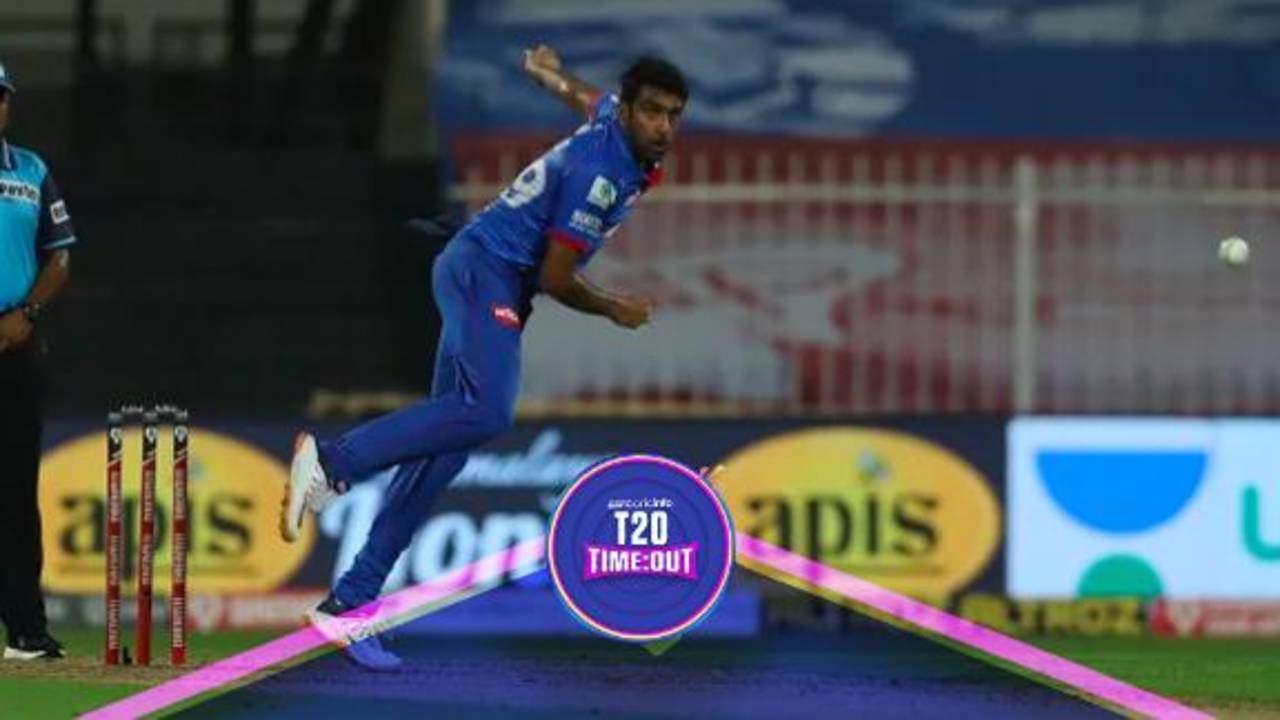Here are the main Talking Points from the second match of IPL 2021, which the Delhi Capitals won convincingly by seven wickets. Did Chennai Super Kings do enough in the batting powerplay?
The Super Kings had a deep batting line-up last season, but it's an even more intimidating one now with Dwayne Bravo and Shardul Thakur possibly the best 9 and 10 combination. So despite being 7 for 2 in the third over, did the Super Kings miss out on scoring opportunities in the powerplay?
Moeen Ali came in at No. 3 and got them a couple of sixes by the end of his innings, but should his role have been such; one that resembles a regular No. 3 batsman, as opposed to a pinchitter? The Super Kings have two or three players who could have played that role in that case. In the end, Ali and Suresh Raina batting together took them to 33 for 2 at the end of the powerplay. In contrast, the Delhi Capitals' openers got them 65. At a ground like the Wankhede Stadium, with the depth they had, the Super Kings might have left some runs out in the middle because of their sedate approach at the start.
ESPNcricinfo's scorers logged seven shots with an intent to hit a boundary from the Super Kings in that period, resulting in 25 runs, as opposed to 14 shots from the Capitals which resulted in 54 runs.
Why did Jadeja bat ahead of Dhoni?
Ravindra Jadeja was arguably the Super Kings' best batsman last season, with a strike rate of 206 in the last five overs of an innings. Among players who played at least ten innings, only AB de Villiers and Kieron Pollard had better scoring rates than him.
Jadeja didn't get a lot of batting in terms of balls faced, however, in comparison to the players mentioned above and batsmen like Eoin Morgan and Hardik Pandya, who specialise in that phase of the innings. While all of them played close to a 100 or more deliveries, Jadeja got only 89. Dhoni played 90, at a strike rate of 142.
Put that in perspective with the Super Kings' scoring rate in the middle overs on Saturday - they scored 110 for 4 in the 7-16 overs phase, which was their highest since the 2018 IPL final when they made 119 for 1. So the plan, with this deep batting line-up was clear. They were going to explode much earlier than they did last season. The move to play Jadeja over Dhoni was possibly aimed to give the allrounder more batting and maximise their batting potential.
Why was Ashwin bowled out inside 11 overs?
It was a pretty bold move to bowl R Ashwin out at just past the halfway mark, but you can see why the Capitals might have done that. Rishabh Pant would have wanted to dismiss one of Ali and Raina early, both left-hand batsmen whose briefs might have been quite similar - to dismantle the bowling and get them boundaries up front. Ashwin is the most crafty bowler in that line-up against left-hand batsmen so it was worth the gamble to bowl him early. His figures against Raina before Saturday night tell a story as well: 46 runs off 48 balls, only four fours, and one dismissal.
Ironically though, he was the bowler they went after. It wasn't a flying start by any means for the Super Kings, who only got a 71 for 3 in ten overs. And Ashwin had leaked more than half of those.
Are CSK too rigid with their bowling template?
There are new purchases and new options in that roster, and it has only been one game so far, so there is room for change. But in their defense of 188, the Super Kings' bowling was encumbered by rigidity. The template last season was Deepak Chahar bowling three overs in the powerplay, with Sam Curran and Shardul Thakur bowling on either side. The spinners would come on immediately after the powerplay, and Bravo in the second half.
Barring a couple of exceptions, this held true for almost every game last season, and it held true on Saturday as well. Chahar can be counted on to get Shaw, and that regimented approach could be pulled off in that case. But on a night when the early wicket didn't come, the Super Kings were caught out by this template: the same bowlers were being employed who went for runs early on. Bravo came on when the Capitals were 113 for 0 after 11 overs and ended up with the best economy rate for them, which made little difference.
Varun Shetty is a sub-editor at ESPNcricinfo
